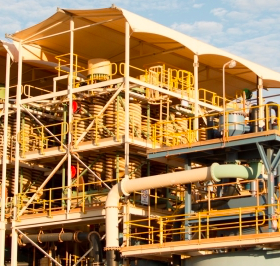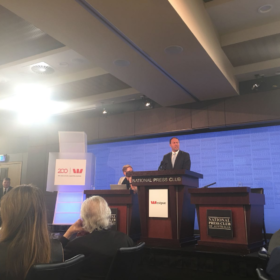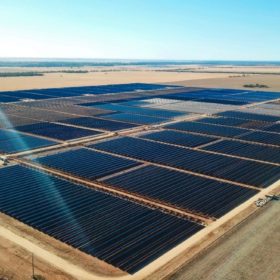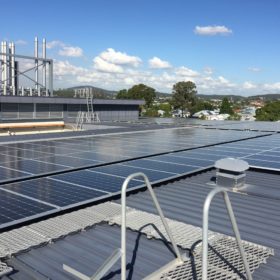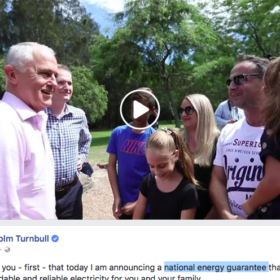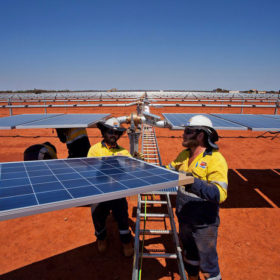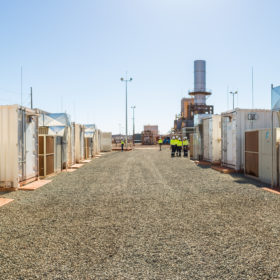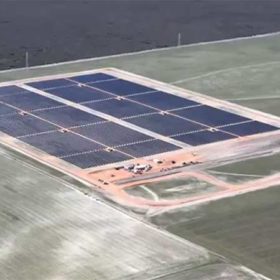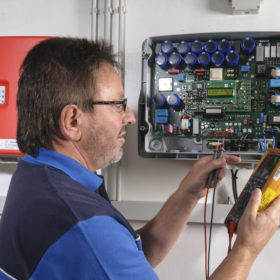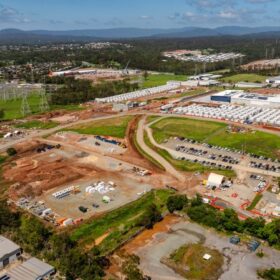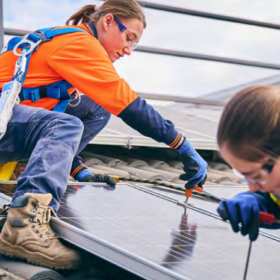Image Resources to power mineral sands operation with 3-4 MW PV
Image Resources has signed a deal with Perth-based Sunrise Energy Group to purchase the power from a 3-4 MW solar PV array, to power 25% of its mineral sands mining operations.
COAG energy ministers sign off on progressing the NEG
Work on the National Energy Guarantee (NEG) policy will continue, with the COAG Energy Council approving its progress today. The detailed policy will be considered by state, federal and territory energy ministers for final approval in August.
NEG likely to move forward, emission reduction remains sticking point
Signs continue to mount that Friday’s COAG Energy Council meeting will agree to move forward with the National Energy Guarantee mechanism. This comes despite continuing and serious objections from some states to the meagre 26%-on-2005 emission reduction target.
March rooftop solar installs sets new record, exceeding NEG modelling by 50%
Rooftop PV installation rates in Australia are breaking all previous records. March saw the highest number of rooftop systems ever installed in the country, worth a capacity of some 127 MW.
Clean Energy Council backs the NEG, with conditions
The CEC has encouraged COAG Energy Council to support the further development of the proposed National Energy Guarantee (NEG) in its meeting on Friday. The peak renewables body’s support, however, is contingent on the policy being fleshed out, “and [it] addressing concerns in relation to the emissions target.”
Fast-falling EPC prices make sub-$60/MWh solar feasible
Analysis from Rystad Energy has revealed that sub-$60/MWh utility scale solar projects could be viable in sunny parts of Australia today. The highly competitive EPC landscape has been identified as the major driver of the improving PV power plant economics although, as always, cost of capital remains key.
ABB supplies 30 MW battery, microgrid to the Pilbara
Swiss electricity infrastructure giant ABB has supplied a large battery storage and microgrid solution to Western Australia’s Pilbara region. The system was installed at Alinta Energy’s 178 MW gas-fired Newman Power Station, which supplies a major iron-ore mine in the mineral-rich region.
Cbus Super, Dutch Infrastructure Fund to hold 80.1% in Synergy renewable portfolio
Construction and building industry superannuation fund Cbus Super has stepped forward, alongside the Dutch Infrastructure Fund (DIF) as the majority investors in Synergy’s solar and wind portfolio. The newly formed Bright Energy Investments vehicle will clear the way for Synergy to develop a pipeline of large scale solar and wind projects in WA.
SunWiz: Resi battery installs approach 21,000 in 2017
Australian solar analyst SunWiz puts Australian residential storage installations at 20,789 for 2017. The number represents a trebling on 2016 and it is the highest among analyst assessments of the market segment.
TÜV Rheinland exposes inverter, battery hacking vulnerabilities
Testing from TÜV Rheinland has revealed that PV inverters and battery storage systems are vulnerable to hacking. By changing system parameters, a hacker could potentially cause a battery system to corrode, “making it like a ‘bomb’.”

